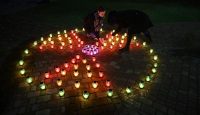
Will Zelenskyy’s new commander-in-chief change Ukraine’s fortunes on the battlefield?
Russia’s full-scale invasion of Ukraine is rapidly approaching its second anniversary – and is not going according to plan for either side.
In a major reset that President Zelenskyy believes can change the trajectory of the conflict, he has sacked his commander-in-chief, General Valeriy Zaluzhny. After a series of disagreements, Zelenskyy has called for a ‘united approach across the whole frontline and a new vision for the war, mobilization and recruitment’.
It is a herculean task for his new chief, Colonel General Oleksandr Syrsky, previously commander of ground forces, given the reality of the current phase of war.
Ukraine had hoped to achieve a ‘miracle on Dnipro’ in 2023 by retaking substantial land in the south to cut Russian supplies to occupied Crimea and make the peninsula vulnerable.… Seguir leyendo »













